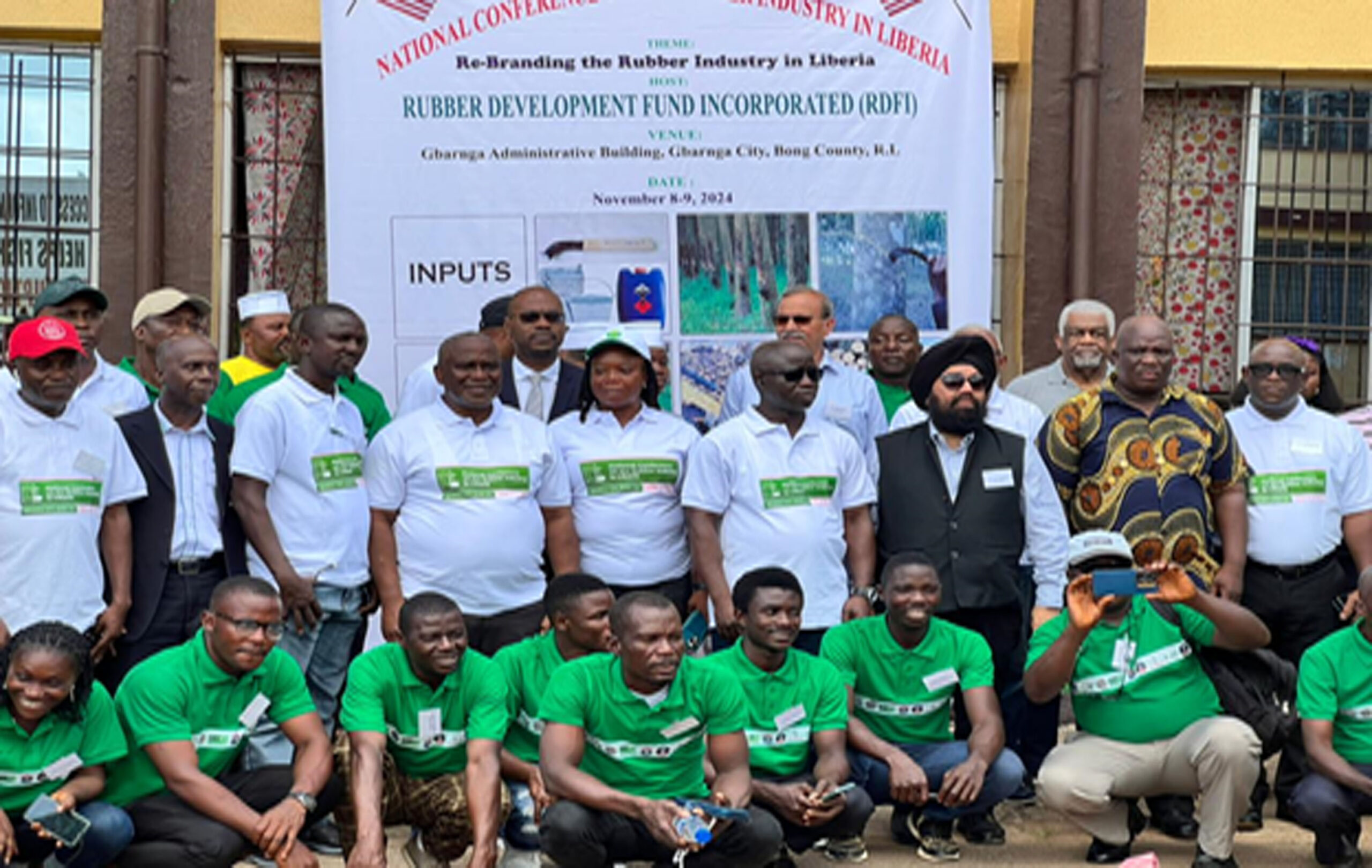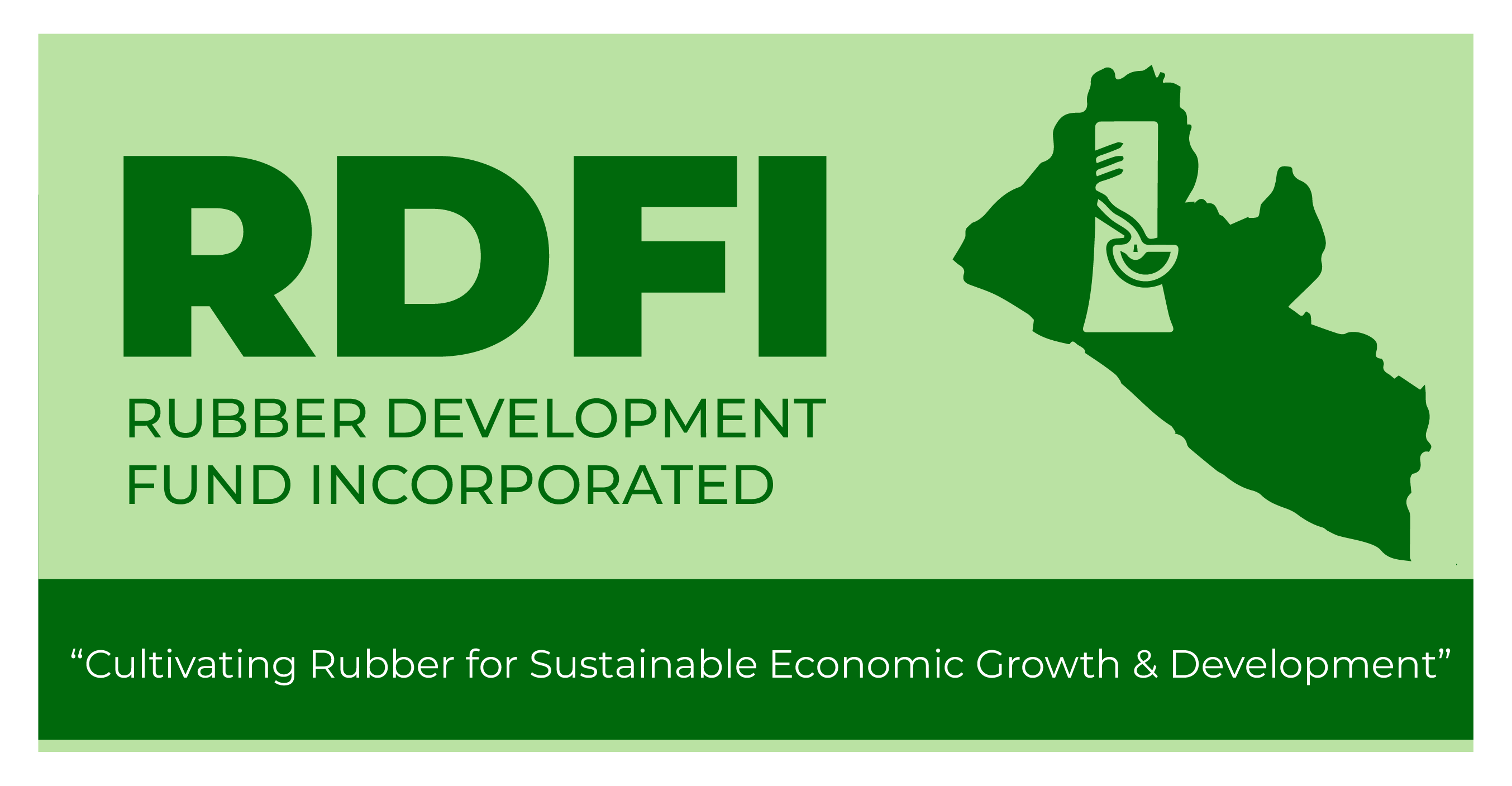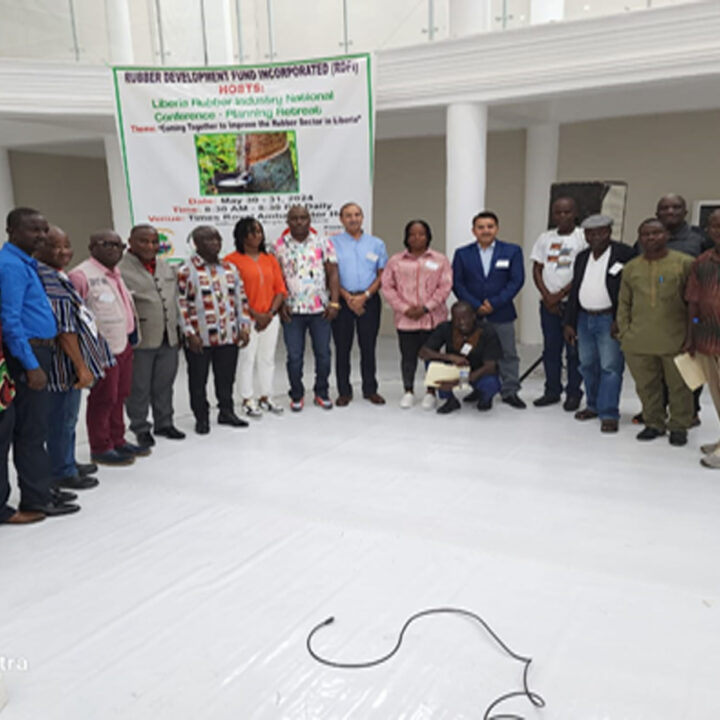- [email protected]
- Mon - Sat: 8.00 am - 7.00 pm
National Conference on the Rubber Industry in Liberia

The Rubber Development Fund Incorporated (RDFI), through its Chairman and the Board of Directors, hosted a National Conference on the Rubber Industry of Liberia in the Gbarnga Administrative Building, Gbarnga City, Bong County on November 8-9, 2024. This Conference brought together stakeholders of the rubber industry in Liberia including processors, rubber farmers, farmers’ organizations, the sector’s regulator, as well as local and international experts in the rubber field. The key objective of the conference was to bring together these stakeholders to interact, brainstorm, and come up with strategies for improving the rubber sector.
At the end of this conference the following resolution was agreed upon:
- That the GOL must establish a committee to determine the monthly price of rubber based upon the SICOM price.
- Farm gate prices should be comparable to that of the Ivorian rubber farmers
- GOL should establish a bank that would provide stabilization funds for farmers during times of slump in the market prices and establish a bank that would provide loans for farmers to improve their farms
- GOL should encourage lower production costs (e.g. electricity) for the processors
- GOL should improve the roads leading to rubber-producing areas of the country to insure that the farmers can easily transport their rubber to market
- That half of the 4% tax collected by the GOL should be re-invested into the development of the industry
- GOL to follow the Ivorian model by underwriting the cost of cultivation of rubber up to production when the farmers can be able to pay back
- That the RDFI should collaborate with the APROMAC and the IRRDB to insure trainings on innovation and best practice can be inculcated in the farmers.
- Besides the above, the stakeholders also committed themselves to:
- Collaboration: Stakeholders reaffirm their commitment to collaborative efforts among all stakeholders, including farmers, producers, processors, and government entities, to enhance the rubber industry’s growth and sustainability.
- Focus on Innovation: Stakeholders will prioritize innovation and modernization in rubber production practices, aiming to increase productivity and environmental sustainability.
- Market Development: Stakeholders commit to exploring new markets and improving access to existing markets for Liberian rubber products, ensuring fair pricing and economic viability for all stakeholders.
- Capacity Building: Stakeholders will invest in training and capacity-building initiatives for rubber farmers and industry workers, enhancing skills and knowledge to improve quality and competitiveness.
- Environmental Sustainability: Stakeholders are dedicated to implementing practices that promote environmental stewardship, including responsible land use and biodiversity conservation, to protect Liberia’s natural resources.
- Advocacy for Policy Support: Stakeholders will advocate for policies that support the rubber industry, including access to financing, infrastructure development, and research initiatives, to create an enabling environment for growth.
- Monitoring and Evaluation: Stakeholders will establish mechanisms for monitoring and evaluating the outcomes of our collective efforts, ensuring accountability and continuous improvement in the rubber sector.
- Public Engagement: Stakeholders will engage with the broader community to raise awareness about the importance of the rubber industry in Liberia’s economy and its potential for job creation and sustainable development.


